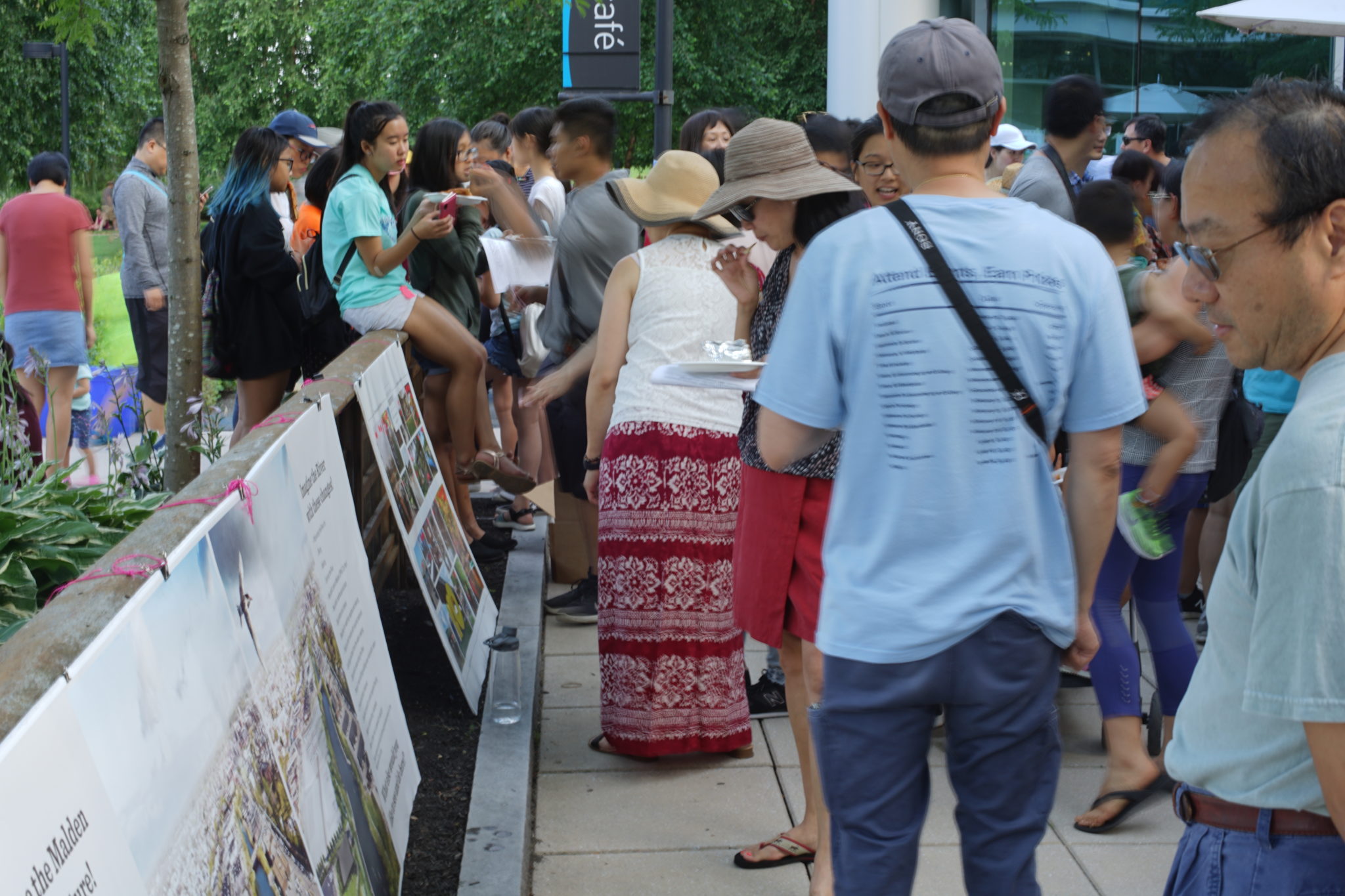Malden River Creative Placemaking Project
OVERVIEW
In 2019, the City of Malden requested Technical Assistance from the MAPC Arts and Culture Department to conduct a creative placemaking project to share knowledge about the long-term impediments and opportunities for change, and to increase public access to the Malden River.
The project resulted in a number of outcomes including: a creative placemaking installation along the river that educates visitors about the opportunities and limitations to opening access to the river, events and tours that brought people to areas with a high potential for change, as well as a report and video that offers research and recommendations for how to improve conditions along the Malden River.

CONTEXT
The Malden River has received renewed attention in recent years from the City, community based organizations, and Malden residents, but little change could be observed on the ground. In 2017 two studies related to the river were released: the Malden River Greenways Plan, and the Commercial Street Corridor Plan. The Greenways plan laid out a vision for increased public access to the river, while the Corridor Plan analyzed the potential for private development. However, these two plans offered few clear next steps that the City could follow to enact zoning changes that would incentivize private developers to provide public access to the river in accordance with state law Chapter 91. To help the City Councillors chart a path forward, and to create new conditions on the ground that would catalyze change, the City requested technical assistance from the MAPC Arts and Culture Department to develop a placemaking initiative.
PARTNERS
- City of Malden
- Malden Redevelopment Authority (MRA)
- Friends of the Malden River (FoMR)
- Mystic River Watershed Association (MyRWA)
- Chinese Culture Connection (CCC)
- Greater Malden Asian American Community Coalition (GMAACC)
FUNDING
Funding for the project was provided through the a $40,000 grant of Technical Assistance from the MAPC Arts and Culture Department. Additionally City Councillors from Malden provided a $1,500 cash match to fund the editing of a video about the initiative.
PROCESS
The goals of the project were twofold; to:
- Share knowledge about current conditions along Malden River
- Spark interest in changing regulatory obstacles to eventually create a welcoming public space along waterfront
To accomplish these goals, the project took on an adaptive, multi-pronged approach that included the production of the following materials and activities:
- Explanatory materials including:
- Outdoor exhibit of permanent signage – located on a site that is slated to become a public park behind the City’s Department of Public Works site.
- Malden River Placemaking Report and Interpreter’s Guide for the Malden River which contains a summary of other plans, original research on the native people’s history of the Malden River, as well as specific recommendations for the City and partners to pursue in order to ensure equitable development of public space along the river.
- Video highlighting the project and the work of its partners to be shared on social media, encouraging the continued public engagement needed to improve conditions along the River.
- Trainings sessions
- Malden River Interpreter trainings with seven community leaders
- Boat tour with nearly half of the City Councillors as well as land use experts from MAPC to informally discuss rezoning options along the River.
- Public Events
- “Exploring the Malden River,” an East Meet West Dialogue even co-sponsored by CCC that brought over 200 people to experience a family-friendly evening at an exemplary space along the River in neighboring Medford.
- “Cruise in a Canoe,” a public boating event co-sponsored by MyRWA and FoMR that attracted City Councilors, the Mayor, and over 100 people to canoe on the Malden River.
Malden River Cleanup with FoMR, attracting over 25 youth from the YMCA and Tufts to use the boats brought in for the Cruise in a Canoe event to clean up floating debris and learn about efforts to keep the river clean with a trash boom.
SUCCESSES
- The process of meeting, building coalitions, and opening lines of communications between various parties in the non-profit and municipal sectors can be just as effective at furthering the goals of the project as the products of the actual placemaking project.
- Generating enthusiasm and buy-in requires deep listening and flexibility.
- Strategic partners can increase capacity to a project and bring in new audiences into the planning process
LEARN MORE
-
Download the final report here: MaldenRiver_CP_Report_ƒinal
- Malden River Placemaking Project: https://www.mapc.org/resource-library/malden-river-creative-placemaking/
- Malden River Works: the successor to the Placemaking project. During the course of the Placemaking initiative, project partners applied – and won – the MIT Leventhal City Prize to create a waterfront public park at the publicly owned site where the Cruise in a Canoe event took place http://www.maldenriverworks.org/